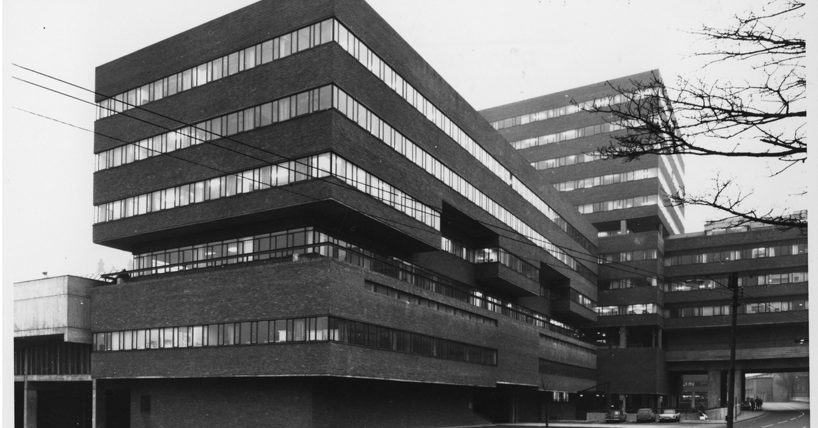Geography at 90
Celebrating 90 years of geography impact
Published on: 20 November 2018
A year of events to mark the 90th anniversary of geography research and teaching at Newcastle University will be rounded off by a talk from the government’s Head of Geography.
Geography - past, present and future
David Wood will talk about why government needs an understanding of how and why economic, social and environmental processes play out in places at a local and global scale, the full range of activities geographers are engaged with across government and the opportunities for collaboration with universities.
His talk ‘Geographers in Government: Mapping our Future’ will also examine potential uses for new forms of geographical information, such as the growth of geospatial data. This is an increasingly important area, and one which the government is currently consulting on ahead of its National Geospatial Strategy expected to be published next year.
During his visit to the University, he will meet with staff and students to hear about the latest research being carried out and how, for 90 years, Geography at Newcastle has influenced policy and had a real world impact.
David Wood said: “I’m very excited to be part of the events to mark the 90th anniversary of geography at Newcastle University. I’m looking forward to hearing about the latest research and talking to the next generation of geographers.”
Head of Geography at Newcastle University, Dr Stuart Dawley, added: “We are delighted to be joined by the new pan-government Head of Geography at a time when geography and geographical skills appear ever more important for policy making. We very much welcome the important work that David Wood and colleagues are doing to grow and champion geography as a profession within government.
“Throughout our 90 years we have forged a distinctive tradition for producing geographical research that engages with, and impacts on, some of the major environmental and societal challenges of the day.
“As well as our research, we have a strong track record of producing geography graduates with skills that lead to important and successful careers across a wide array of roles, reflecting our commitment to research-led teaching and the employability of geographers.”
David Wood's talk will take place on Thursday 22 November, at 5.15pm in the Boilerhouse, King's Road.

International impact
Now part of the internationally-renowned School of Geography, Politics and Sociology, the Geography department was formally set up in 1928.
It built upon a deep-rooted interest for geographical research in the North East, which had existed since the late 19th century - led by the influential Tyneside Geographical Society.
The year after the Geography department was established, it recruited Henry Daysh, who was Head of Geography for 36 years until his retirement in 1966.
The new department quickly gained lots of momentum, particularly in the early post-war period, buoyed in part by the popularity of its taught programmes and the work of Professor Daysh, who had an important role in addressing the economic and industrial challenges facing the North East in the wake of the Great Depression in the 1930s. One example of this was his involvement in the development of the first ever government-funded factory building scheme at the Team Valley Trading Estate in Gateshead in 1938.
Work such as this helped to establish an internationally renowned reputation for the impact of geography research at Newcastle, which is now ranked in the top 60 of the world’s major institutions for geography research by the QS World University rankings.
The work of the department today now seeks to influence policy debates locally and globally.
Recent work has included research to better understand the working conditions of South African workers in the wildflower industry to improve their position in local and international supply chains.
Another example of research carried out at Newcastle University is the work to help communities and policymakers better monitor, prepare for and respond to the effects of landslides and flood events. The department is also leading research to help politicians, educators and voluntary organisations in Scotland to tackle Islamophobia in their communities.
Dr Dawley added: “As we celebrate our heritage, it’s just as important to look to our future and we look forward to contributing further to the University’s collective sense of purpose and commitment to research and teaching with real societal and environmental impact”
A legacy for the 21st century
By the time of his retirement in 1966, Henry Daysh had become the University’s first ever Deputy Vice-Chancellor and was the driving force behind the modernisation of the campus.
He successfully negotiated with Newcastle City Council and the Freemen of the City for the expansion of the university, including the construction of the Claremont Tower and Bridge - and Daysh building, which is named in his honour.
Earlier this year, work started on a complete refurbishment of the Daysh building, and Claremont Tower and Bridge that will transform the 1960s buildings. The £60 million project will create increased study space for students, specialist teaching space and academic staff offices.
Read more about the history of Geography research and teaching at Newcastle here.



